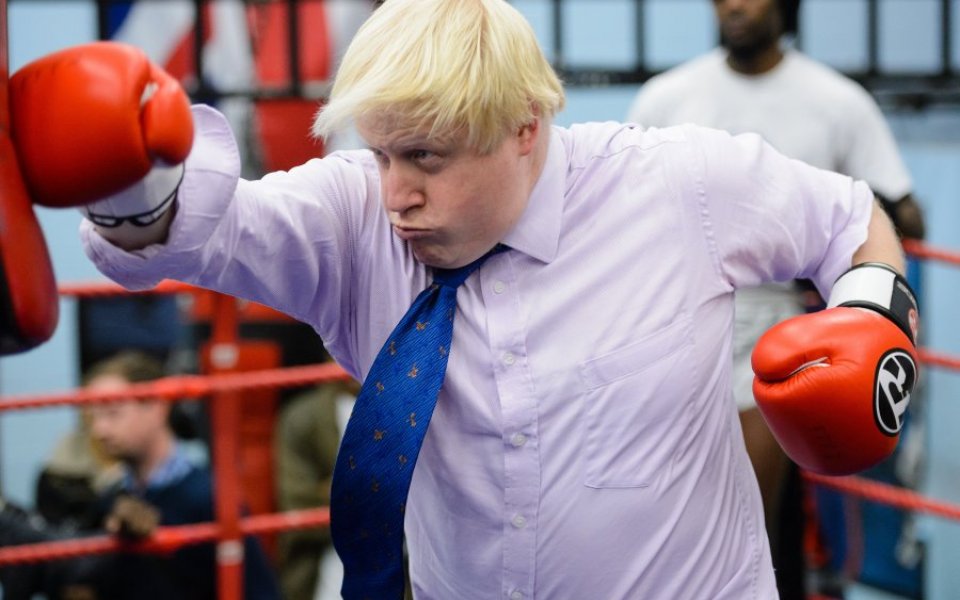How the next mayor can turn London into a truly digital city

In a little over three months, Londoners will elect a new mayor. When we last went to the polls in 2012, London’s tech industry was only just starting to bloom, but since then it has gone on to become the driving force of the capital’s economy. The next mayor will take the helm of the undisputed digital capital of Europe, and the role comes with an opportunity to work with the industry to make London a truly digital city. London’s Digital Future: The Mayoral Tech Manifesto, published by Tech London Advocates yesterday in partnership with TechUK and Centre for London, has this message at its core.
We surveyed more than 300 members of London’s technology community ahead of the election, and the results showed that a shortage of talent is the biggest barrier to growth for the industry, according to 43 per cent of respondents. Solving this will be a priority for the next mayor, and will require a mixture of home grown and international talent, and the input of public and private sector bodies.
To start with, we must end digital illiteracy. Research shows that 18 per cent of Londoners have no basic digital skills, which makes it difficult for them to find employment and access public services in an increasingly digital world. The new mayor should seek to eliminate this digital exclusion, addressing everything from basic digital skills to private sector support for training the next generation of programmers. London has access to the best organisations in technology, media and education, and the next mayor should work with the likes of Google, Pearson and the University of London to increase Londoners’ digital IQ in everything from basic software use to advanced data analytics.
London’s status as a driver of the UK and European economy cannot be taken for granted by City Hall either, and the next mayor should work hard to maintain and improve relations with digital businesses. This means conducting an innovation audit to assess which regulation is outdated and needs to be revised, as well as where future regulatory bottlenecks may slow investment and innovation. Transport for London has shown leadership in this area by developing a regulatory framework and a testing area for driverless cars ahead of their introduction, and this should act as a blueprint for advancements in the Internet of Things, wearables and more.
There is also still huge potential for entrepreneurs and government from fostering closer working ties between both groups. A report by the Harvard Business Review showed that the US economy is operating at just 18 per cent of its digital potential, and the same could be said for London. City Hall would greatly benefit from building digital best practice into public services, while entrepreneurs would gain a lot from London’s mayor championing digital businesses in trade missions abroad. The mayor should proactively engage with those working in London’s thriving startup scene as well as the multinationals based here to find ways to support both. London must be united in its support for a digital future, so that its message may be heard not only beyond Zone 6 but the world over.
One area where public and private groups can work together is in the shared use of data to improve public and private services. The city should appoint a chief digital officer. Reporting directly to the mayor, he or she would take responsibility for co-ordinating, developing and delivering a shared repository of data for public and private use. This means working with service providers like Transport for London, the Fire Brigade and the Met Police to collect and analyse data sets. This would help with everything from eliminating transport bottlenecks using GPS data, to prioritising buildings for fire safety inspection or deploying police more effectively.
This data-led approach to public services would require both proactively collecting data as well as clearly defined regulation around how it is gathered, shared and anonymised. The next mayor should draft an open data charter that outlines transparently what data is being collected, on what terms and to what end. This would permit the sharing of data with companies like Citymapper or Uber to improve London’s road system and allow both TfL and private apps to deliver a better quality service.
On 9 February, mayoral candidates will square off in Here East to debate the city’s digital future. London’s technology industry is the envy of Europe, with the capital hosting the lion’s share of European tech companies valued at over $1bn. The next mayor has a unique opportunity to build on this while improving public services and the employability of Londoners.